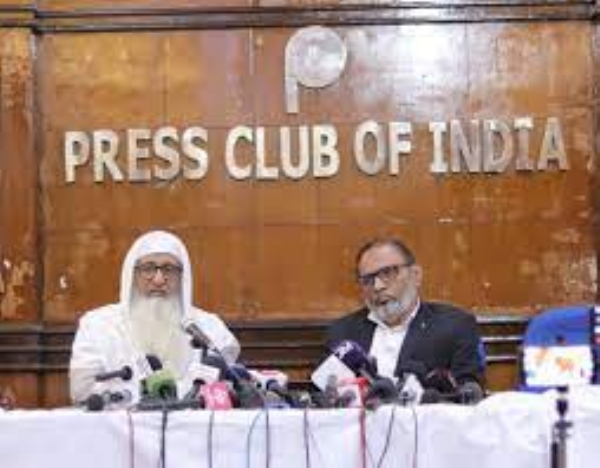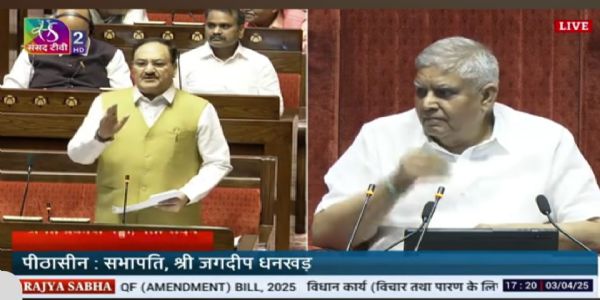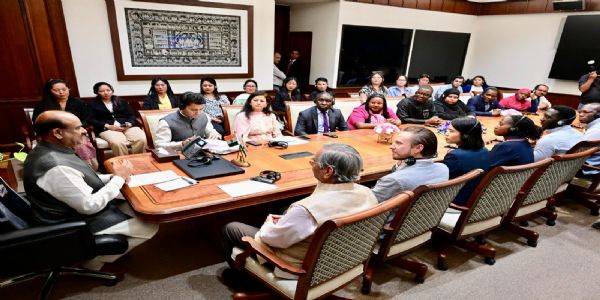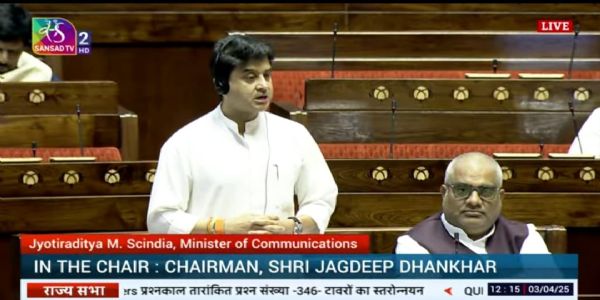
New Delhi, 2 April (H.S.): The All India Muslim Personal Law Board (AIMPLB) has announced its intention to challenge the Waqf (Amendment) Bill in court and initiate a nationwide campaign against what it describes as a black law that undermines the rights of the Muslim community. AIMPLB leaders criticized the Bill, particularly after its review by the Joint Parliamentary Committee (JPC), which they believe has heightened its objectionable nature.
The Waqf (Amendment) Bill 2025 was introduced in the Lok Sabha for discussion. Prior to its introduction, AIMPLB members, including General Secretary Mohammad Fazlur Rahim Mujaddidi, held a press conference expressing their firm rejection of the Bill. They characterized it as discriminatory, motivated by communal interests, and directly violating the constitutional rights of Muslims.
Former MP and AIMPLB member Mohammad Adeeb denounced the legislation as a political Bill aimed at appropriating properties belonging to the Muslim community, such as dargahs, mosques, and graveyards. Adeeb lamented that the Bill's presentation in Parliament marked a worst day for Muslims. He highlighted that there had been significant opposition to the Bill during its discussions in the Joint Committee and asserted that this struggle is not over. “It should not be assumed that we have lost the battle. We have just begun,” he stated, emphasizing that the proposed law threatens the foundational values of the nation.
Adeeb called upon all citizens with a sense of justice to resist the Bill, reiterating AIMPLB's commitment to fighting it through both legal channels and public demonstrations. He declared, “We will go to court. We will not rest until this (proposed) law is withdrawn.”
AIMPLB spokesperson S Q R Ilyas announced that the organization plans to hold nationwide programs, similar to the farmers' protests that successfully led to the withdrawal of controversial farm laws. Ilyas indicated that the AIMPLB might resort to roadblocks and other peaceful methods to express their opposition.
In a follow-up press statement, the AIMPLB appealed to secular, non-communal parties and conscientious MPs to reject the divisive Bill, urging them to uphold the constitutional principles of equality, justice, and religious freedom. They encouraged MPs to actively participate in parliamentary debates instead of walking out, advocating for a vote in both houses of Parliament to pressurize NDA allies and undecided MPs into taking a definitive stance against the legislation.
The All India Muslim Personal Law Board (AIMPLB) has urged citizens nationwide to engage in peaceful and democratic protests if the Amendment Bill is passed, declaring a commitment to continued demonstrations until its withdrawal. The general secretary of AIMPLB expressed concerns about the Bill, claiming it was introduced with a distinct agenda, highlighting that over 5 crore emails opposing the Bill were disregarded. He stated that the Bill has become even more contentious following scrutiny by the Joint Parliamentary Committee (JPC).
He noted that the management of Waqf properties has been transferred from Muslims to the government, fundamentally altering its administration through the provisions of the new Bill. The amendments approved by the JPC have further complicated the situation, leading AIMPLB to view the JPC as deceptive, asserting that the Bill aims to economically and religiously marginalize Muslims.
Ilyas characterized the Bill as discriminatory and driven by communal motives, suggesting that it seeks to strip Muslims of their constitutional rights. He attributed the Bill's creation to the communal agenda of the ruling Bharatiya Janata Party (BJP), indicating that despite the JPC's involvement for nearly six months, their objections went unheeded. The group has organized protests in Delhi, Patna, and Vijayawada, voicing their opposition.
AIMPLB met with various political leaders, including Andhra Pradesh Chief Minister Chandrababu Naidu and Bihar Chief Minister Nitish Kumar, to communicate their concerns. However, the general sentiment was that the JPC did not adequately consider the opinions presented by opposition members, resulting in a more stringent version of the Bill.
Ilyas expressed hope that if the Bill is passed, at least some political allies of the BJP might refrain from supporting its communal agenda to maintain their secular image. Furthermore, Adeeb criticized the leadership of BJP allies, suggesting they prioritize their own interests over leadership, thereby reducing their role from leaders to traders.
In summary, AIMPLB's call for protests against the Amendment Bill underscores a perception of discrimination, a failure to consider public opposition, and a fear of loss of rights among Muslins in India. The organization maintains that the legislation is harmful and serves a larger communal agenda, compelling them to take a stand against it.
---------------
Hindusthan Samachar / Indrani Sarkar








